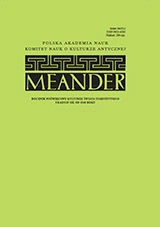
Digesta po polsku
A review of the first four volumes of the edition and Polish translation of Justinian’s Digest done by Tomasz Palmirski and a team under his guidance. The volumes contain books I–XXVII.
More...We kindly inform you that, as long as the subject affiliation of our 300.000+ articles is in progress, you might get unsufficient or no results on your third level or second level search. In this case, please broaden your search criteria.

A review of the first four volumes of the edition and Polish translation of Justinian’s Digest done by Tomasz Palmirski and a team under his guidance. The volumes contain books I–XXVII.
More...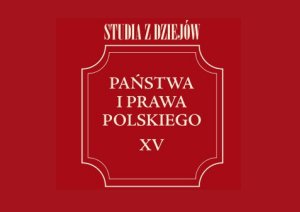
The royal tenure on church estates resulted from an initiative of King Casimir the Great (Kazimierz Wielki) or the monastery being their owner. The reason declared officially for setting up the lifelong tenure was the intention to improve the economic condition of the church estates (melioratio bonorum). Yet one can also guess other, hidden reasons for setting up such tenures. It is so as in this way the king had a pretext to manifest the royal right of patronage towards monasteries and also derived profit, although the latter was not necessarily obtained at the moment of conducting the improvement of the estates. It is also probable that King Casimir counted on the fact that the monastic endowments he only held in lifelong tenure would remain in the hands of the royalty for ever.
More...
The crime of rape, and especially its reasons and results, was among the numerous social issues that remained covered with a particular taboo in the Second Republic of Poland. At the time, there was no environment that would undertake to initiate a discussion whose subjects would include among others the exceedingly unclear legal situation of victims of rape. Even with the fairly harsh penal sanctions that the perpetrators of the crime were threatened with, the raped women had to prove before the court that they did not provoke the man with their behaviour, and that while being raped they resisted physically. It was so as lack of resistance was considered a particular concession for a sexual intercourse.
More...
Traditionally (as it was regulated in the Roman law) employees sell their labour while the workers and self-employed sell a product which they manufactured. Therefore an employees has been qualified by labour lawyers as those who perform their subordinated type work under the contract of employment while independent work performed personally by producers of any work or services and self-employed is qualified as carried under the contract for services. Between the Great Wars Polish entrepreneurs and workers enjoy a freedom to chose between employment which was categorized by the state legislator as “subordinated” or “independent” . Presidential regulations, two of 1928 on white collar- and blue collar type of employment contracts were used on equal footing with the third regulation entitled Th e Code of obligations introduced into the national civil law system in 1933.
More...
During the second world war, the occupying power allowed Polish notaries to run individual notary public offices and perform notarial deeds therein under the supervision of occupying authorities, on the grounds of prewar Polish legislation, on the Polish territory in corporated into the General Government. Moreover, the notaries were obliged to draft deeds coherent with the legislation introduced by the occupant in the General Government. The number of the normative acts that made a brunt on the contemporary notary practice certainly includes the decision of the General Governor of 27 March 1940 on transactions in real estate in the General Government. Cases of deeds by notaries from the Warsaw Notary Chamber were used to portray the strategies of coping with the requirements imposed by the occupant.
More...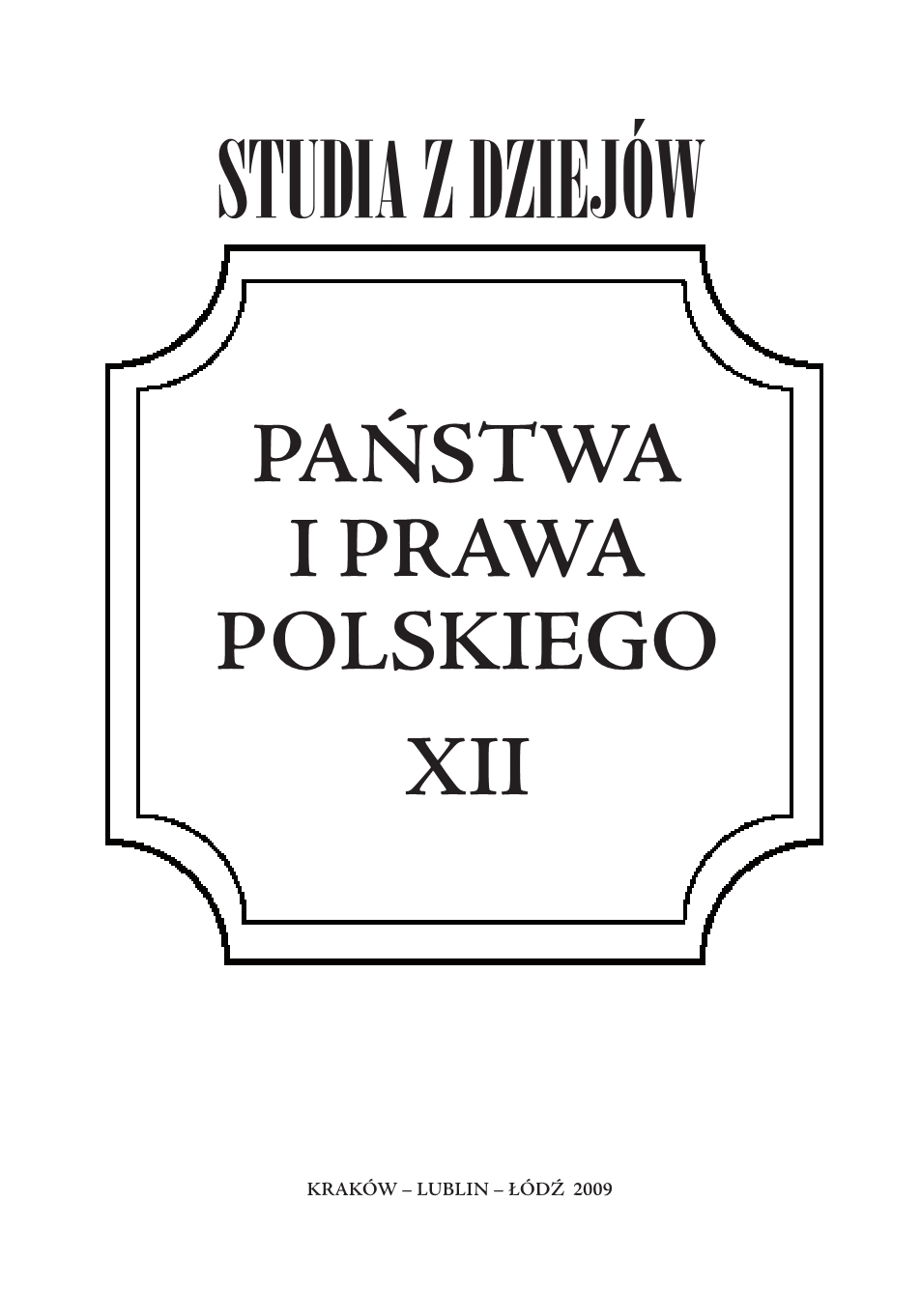
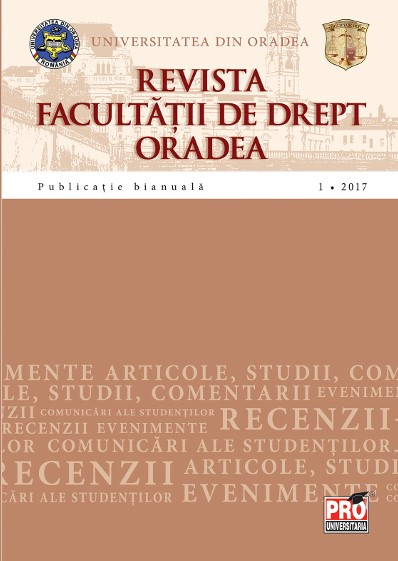
After 1990, the prefect's institution, after years of absence in the administrative system, becomes an important institution of the Romanian administrative system.In this paper an attempt was made to analyze the legal evolution of this institution, marking as starting point the Law no. 5 of 19 July 1990 on the administration of counties, municipalities, towns and communes until the organization of local elections up to the present legislation.On a field of changes in the national administration, from an administration belonging to a communist system towards a European administration based on the principles of local autonomy and decentralization, the prefect resumed its role and place in the system of the local public administration authorities.It is remarkable that the prefect institution's evolution is closely related to the development of the society, its way of organizing and passing the 27 years of the Romanian public administration to the principles of the modern European administration.In our research we tried to analyze, starting from the concrete example of prefect's attributions, which would be the best solution for the representation of the Government in the territory of a prefect - senior civil servant, prefect of career versus prefect politically called.
More...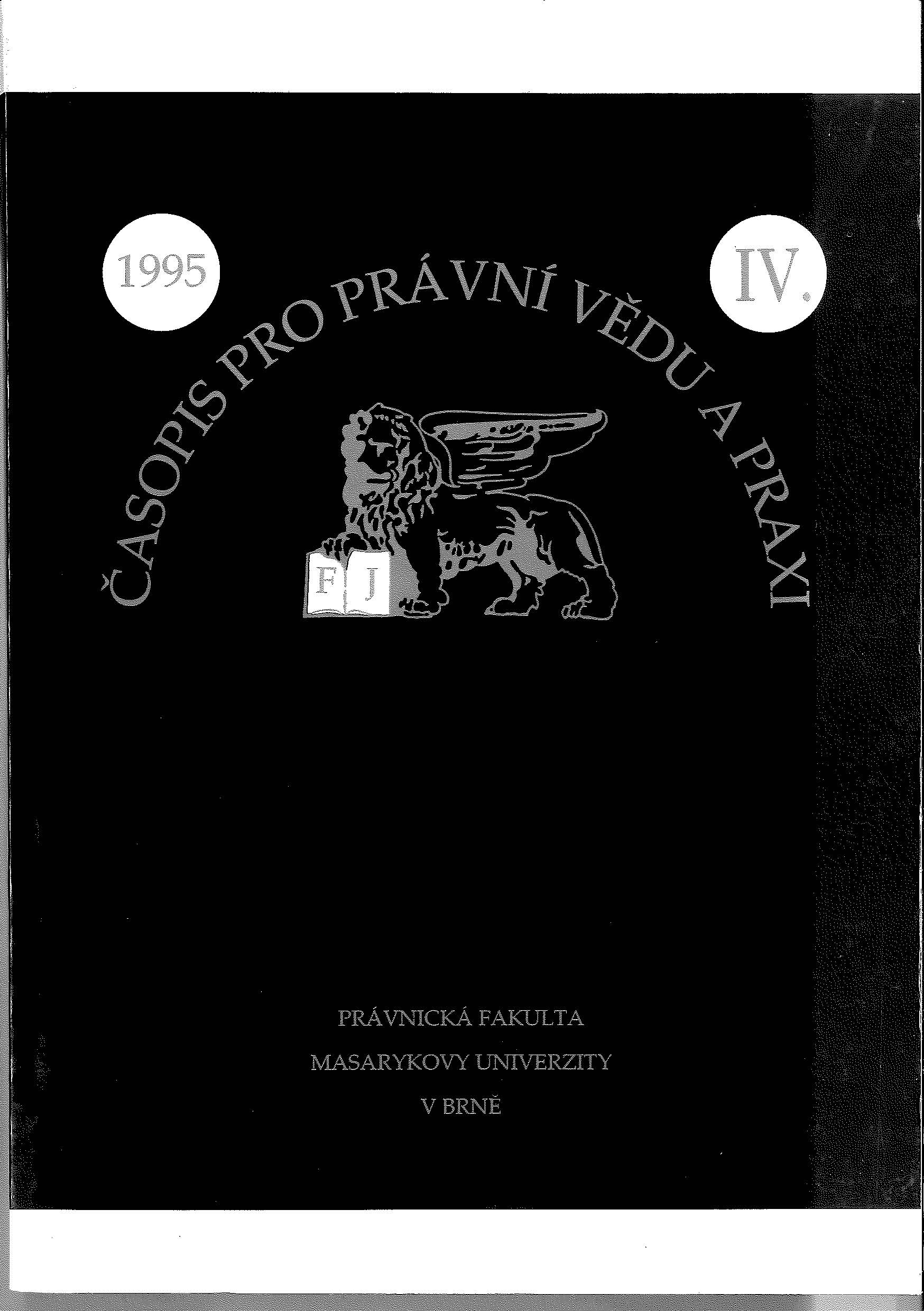
Spolu s jednotkami říšsko-německého vojska armádní skupiny 5 pod velením generála W. Lista vnikla do Brna v ponurou středu 15. března 1939 také tzv. Einsatzgruppe II Mähren v čele s vládním ředitelem SS Standartenführerem JUDr. Walterem Stahleckerem, která měla ihned začít se státně policejní činností na Moravě. Její součástí bylo tzv. Einsatzkommando VI, kterému velel vládní rada SS Sturmbannführer Walter Blomberg, které mělo vykonávat činnost přímo v městě Brně a několika sousedních okresech.
More...
Das Sprichwort sagt: "Die Zeit heilt alle Wunden". Je mehr Zeit vergeht, desto weniger schmerzt die Wunde. Es bildet sich eine Narbe, nach einiger Zeit sieht man sie kaum noch, dal Leid ist vergessen. Fragt sich nur: Wie viel Zeit?
More...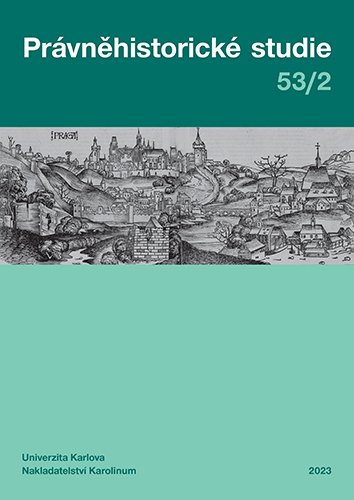
The article focuses on the legal institute of exceptiones in selected tractates written in the 14th century in the diocese of Prague. The first part introduces Circa processum iudiciarium and its inspirational sources, mainly rooted in William Durand’s Speculum iudiciale. The article also analyses Ordo iudiciarius secundum stilum Pragensem with emphasis on the use and different forms of exceptiones. In addition the submission focuses on other institutes of Roman-Canon law bonded with defences, such as replicationes and interlocutory sentences. Second part of this submission examines the praxis of ecclesiastical courts within the diocese of Prague and their application of selected institutes. Such analysis is conducted based on preserved court files of the General Vicariate as well as judicial charters. The aim of the article is to connect the theoretical concepts of tractates with actual judicial application and usage of these institutes within the Roman-Canon procedure.
More...
The present paper focuses on the release proceeding of the serfs on the Chamber estates of Točník, Zbiroh and Králův Dvůr in the years 1670–1690, i.e. during the office of the governor Ignatius Sebastian de Bois. The process was controlled by both provincial regulations, such as the Renewed Provincial Ordinance, and overlord regulations, such as the instructions for the governor. However, the exact release proceeding has not yet been described, so the thesis attempts to shed light on the process that both the serfs and the overlords had to undergo in order to issue a letter of release. The thesis concludes with the hypothesis that the mechanisms described are applicable to other chambered estates in the second half of the 17th century. The basis of the thesis are microhistorical probes, which, in conjunction with a quantitative-qualitative approach, allow to capture both the overall picture of the release proceedings and its individual aspects in detail.
More...
The aim of the study is to point out the fact that the evolution of human society is accompanied by constant wars, which demanded a response to its existence also at the level of socio-legal philosophy. It deals with this issue from a legal, moral, and ethical point of view, which, in this case, are basically intertwined in the concept of a just war. Its roots go back to antiquity, and it is also a part of modern war law and philosophy. A relatively significant shift in this concept occurred precisely in the Middle Ages because of Christian wars, or under the influence of medieval teachings. This development continued in the early modern period in connection with the colonization of America. Therefore, in this study, we will focus on the views of Thomas Aquinas (as a representative of the High Middle Ages and scholasticism) and Francisco de Vitoria (as a representative of the Early Modern Age and the School of Salamanca). This topic is even more relevant because nowadays theories of just war are no longer viewed only at the level of a harmless academic debate, but they are beginning to be more and more accentuated as tools serving specific goals of the time.
More...
The paper deals with the contribution of a prominent legal Romanist to the development of legal propaedeutics (introduction to the study of law). This author dedicated the introductory chapter of his textbook on private Roman law to legal propaedeutics. The paper examines how this text has stood up in comparison with the contributions of the author’s contemporaries, what has made it of timeless significance and, conversely, what within it has been superseded.
More...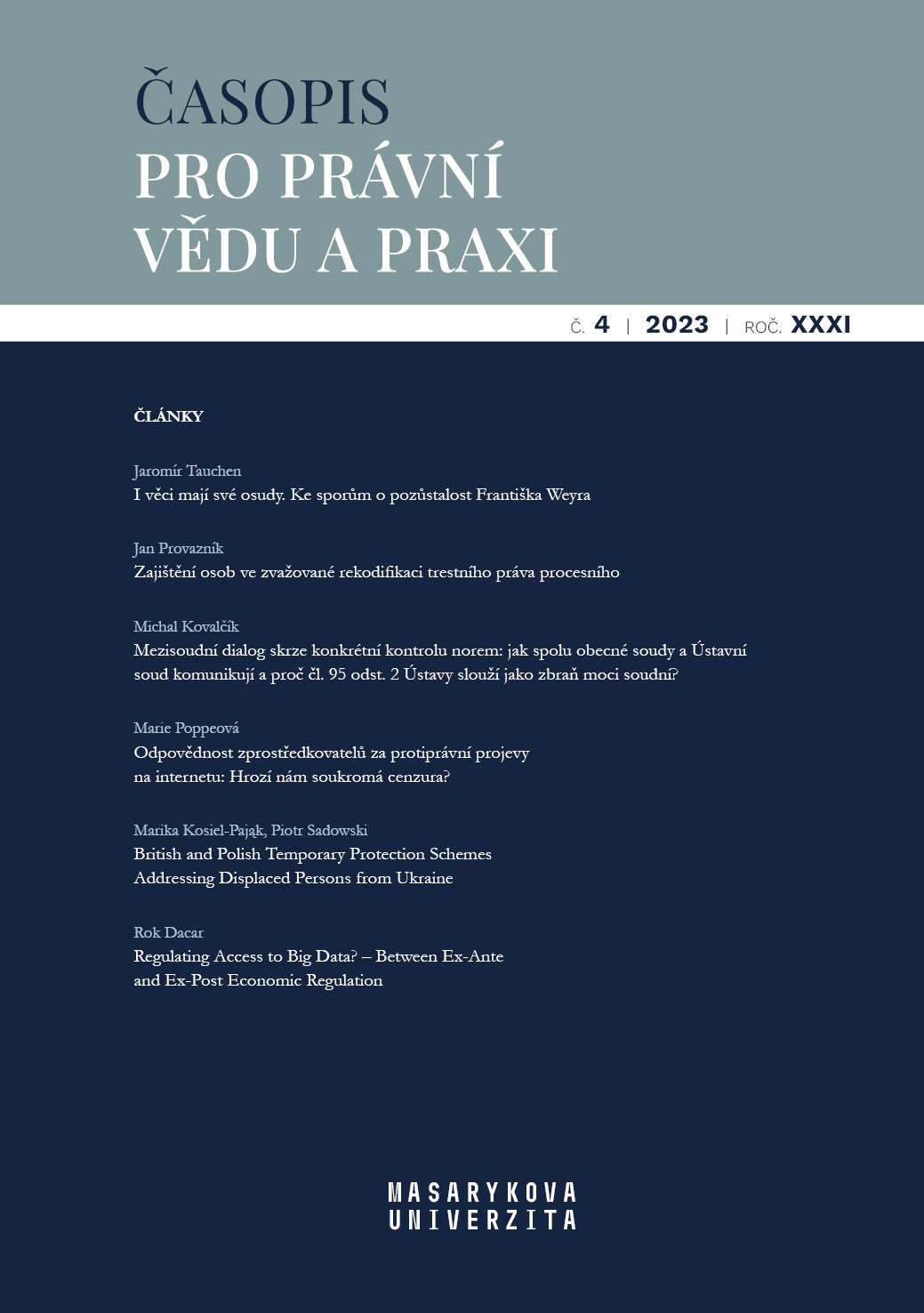
František Weyr can undoubtedly be considered the greatest personality in the history of the Faculty of Law of the Masaryk University and the most important Czech lawyer of the first half of the twentieth century. Weyr left behind not only his own scientific school, known as normative theory, which survived in the minds of his students even after his death, but also a villa and a number of movables. Their subsequent fate is the subject of this paper, which was prepared on the basis of archival research and among other things deals with the legal disputes that his wife, Helena Weyrová, led in the 1950s and 1960s. These disputes directly and indirectly involved other professors of the then already closed Brno Faculty of Law, such as Vladimír Vybral and Vladimír Kubeš.
More...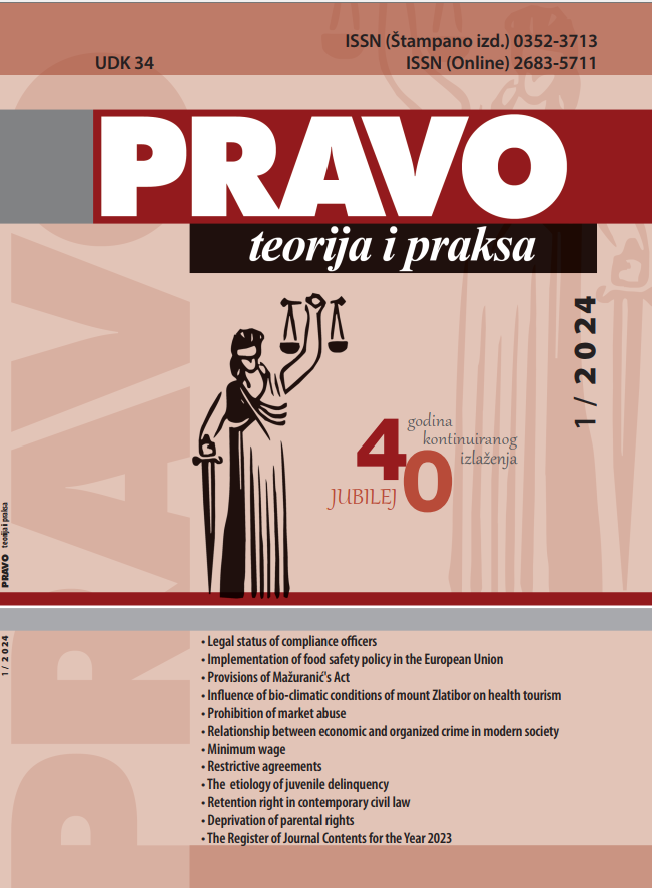
Ivan Mažuranić, Croatian Ban who reigned from 1873-1880 implemented significant reforms in education, administration, and judiciary since his political programme focused on the provision of the modern legal framework for Croatian autonomy. During the second year of his reign, on 19th August 1874, Ban Mažuranić proposed to the Parliament a draft Act on the organisation of public schools and teacher training schools (original in Croatian Zakon ob ustroju pučkih školah i preparandijah), which was adopted and confirmed by the Austrian Emperor and Hungarian-Croatian King Francis Joseph I already on 14th October 1874. That Act is considered to be the first Croatian autonomous school law and one of the most liberal school laws in Europe, as it secured the schools the status of secular institutions.Many of the provisions of that Act are still accurate and applicable in today's Croatian educational system. However, being proposed back then, they caused serious debates and protests of all social classes. A qualitative comparative analysis of the Act on the organisation organization of public schools and teacher training schools and the current Act on education in primary and secondary schools will compare the legislative frameworks for encouraging creativity in education, which provide prerequisites for the creative and autonomous work of teachers. Having passed this law, Ban Mažuranić proved himself to be serious in fulfilling his election promises. Along with other laws enforced in judiciary and administration, this Act opened the way for the modernisation of the former Croatian state and its faster adoption of European standards of a modern civil state.
More...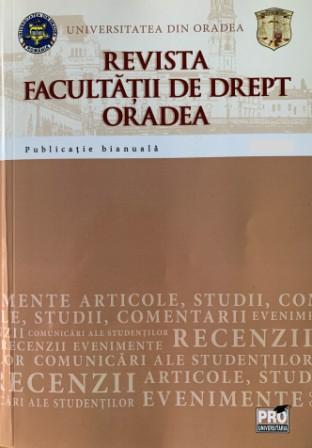
The ancient Greeks, in laying the foundations for our culture, have at the same time marked it with a kind of original sin, and often these basic notions become untranslatable into our present day. It all begins with Socrates, Plato and Aristotle. Fundamental ancient concepts such as democracy, law, politics, ethics have their origins in the polis, so simple analogies are no longer possible; Socrates lays the foundations of political participation, rule of law, raises ethics to the status of knowledge, but the ancient city-state and its inhabitants often differed from us in a fundamental way. Antiquity left us convinced of the existence of an inseparable relationship between values and virtues and the state.
More...
In the present study, we tried to retrace the path traveled over the centuries by the law education in the Kingdom of Hungary, that of Transylvania and, in particular, that of the city of Oradea. Our approach was justified by the fact that in 1465 King Matthew Corvin had the opportunity to choose the city of Oradea as the seat of a new university that was to be established in the Kingdom of Hungary. Unfortunately, it was the financial motivation that led the king to choose the city of Bratislava over Oradea, although the Transylvanian city already had a tradition of top-ranking educational institutions. A chapter school has operated here since the 13th century, then a Jesuit gymnasium, a Calvin gymnasium and from the 18th century a law academy. The latter operated until 1934, when it was absorbed by the University of Cluj. In other words, higher education in Oradea already had a secular tradition. In the second part of the study, we tried to decipher the motivation that led to the choice of the city of Cluj as the center of university education in Transylvania. I came to the conclusion that this city, in the context of the creation of the new state Greater Romania, had to be consolidated as the cultural capital of the Transylvanian Romanians, a center intended to ensure the formation of the Romanian intellectuals so necessary in the institutions of administration, economy and education in the region.
More...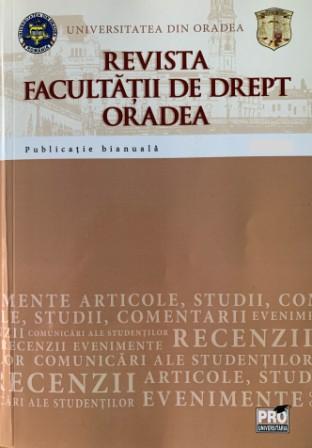
In the present study, we tried to retrace the path traveled over the centuries by the law education in the Kingdom of Hungary, that of Transylvania and, in particular, that of the city of Oradea. Our approach was justified by the fact that in 1465 King Matthew Corvin had the opportunity to choose the city of Oradea as the seat of a new university that was to be established in the Kingdom of Hungary. Unfortunately, it was the financial motivation that led the king to choose the city of Bratislava over Oradea, although the Transylvanian city already had a tradition of top ranking educational institutions. A chapter school has operated here since the 13th century, then a Jesuit gymnasium, a Calvin gymnasium and from the 18th century a law academy. The latter operated until 1934, when it was absorbed by the University of Cluj. In other words, higher education in Oradea already had a secular tradition. In the second part of the study, we tried to decipher the motivation that led to the choice of the city of Cluj as the center of university education in Transylvania. I came to the conclusion that this city, in the context of the creation of the new state Greater Romania, had to be consolidated as the cultural capital of the Transylvanian Romanians, a center intended to ensure the formation of the Romanian intellectuals so necessary in the institutions of administration, economy and education in the region.
More...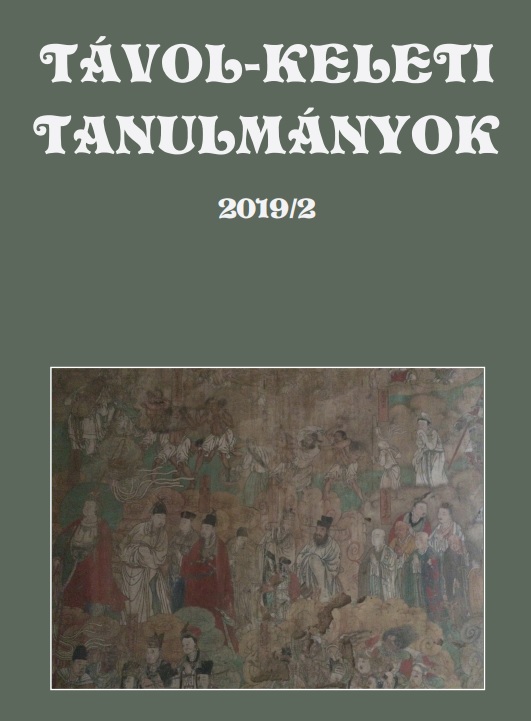
Review of Attila Kormány: A tradicionális és a modern kínai jog – A jog fejlődése Kínában a kezdetektől napjainkig. ELTE Eötvös Kiadó Kft., 2018
More...
Common law is one of the oldest forms of legal regulations that developed through unwritten rules and norms of behaviour that were established in the earliest communities. This law was based on customs adopted by the members of social community and passed down from generation to generation. In the absence of codified laws, customs made it possible to maintain social order and resolve conflicts within the community. One of the most well-known norms of common law was the institute of blood vengeance. It represented a way of maintaining balance and it could be said to embody ‘justice’ within the community, reflected in the practice where murder or injury was reciprocated with the same measure towards the perpetrator or his family. In the earliest periods, this rule was deeply rooted in the belief that only revenge could restore lost honor and establish balance within the community. Given the importance of the institute of blood vengeance, this paper will analyze when and in which documents blood vengeance was first mentioned, its characteristics, as well as its two institutions – oath and conciliation. These institutions, by their origin and purpose, can be said to oppose this custom, and within them, certain elements for its suppression can be found.
More...